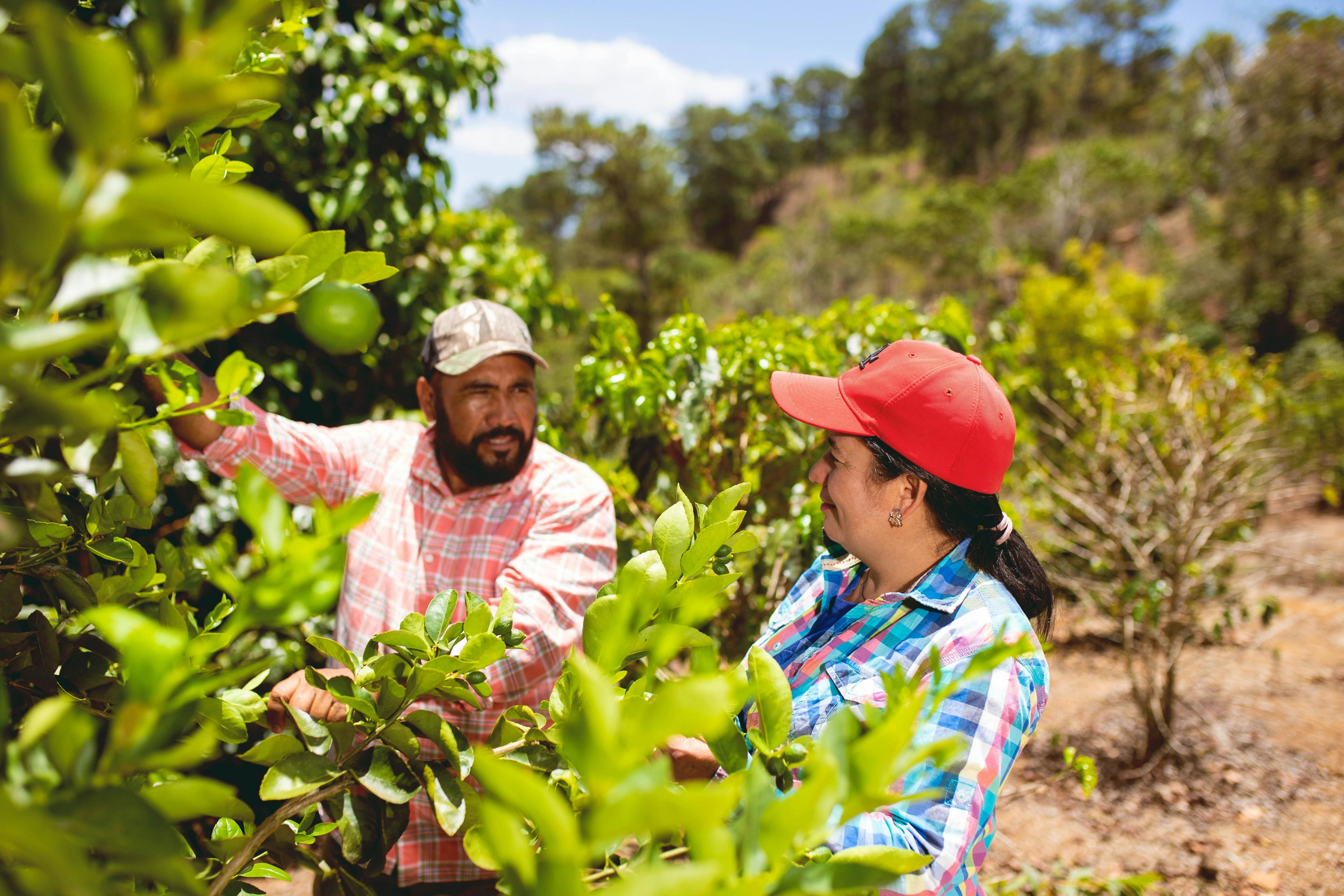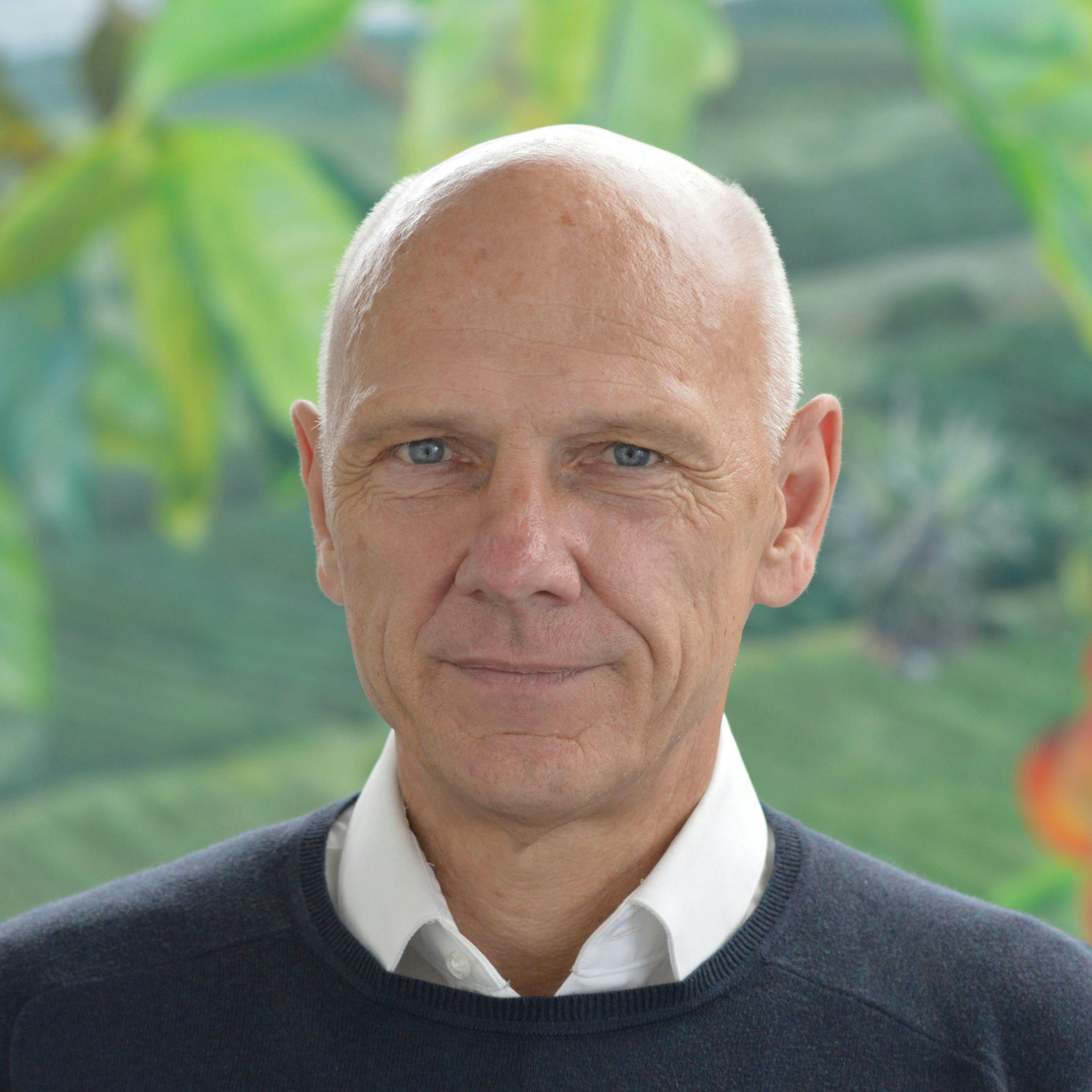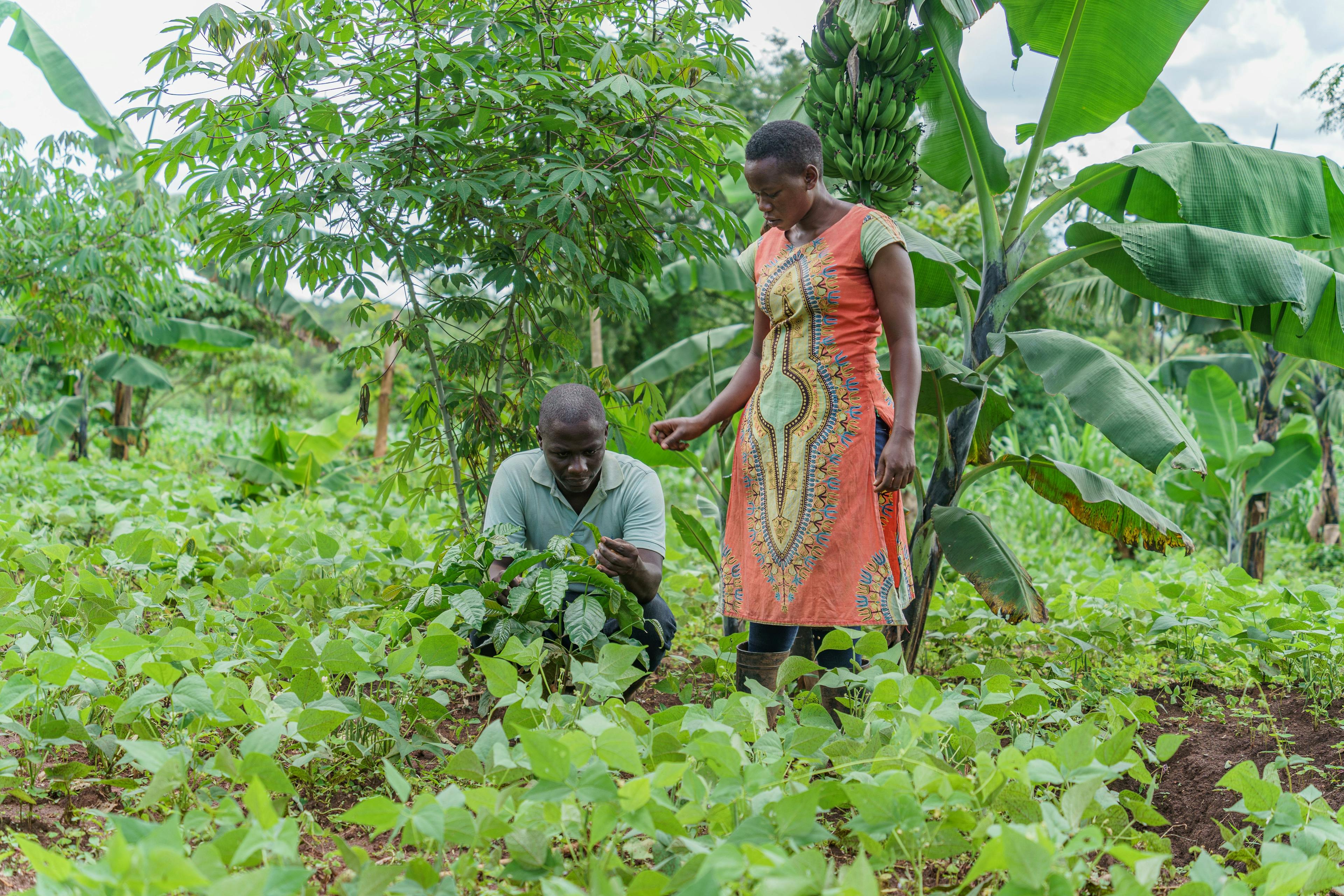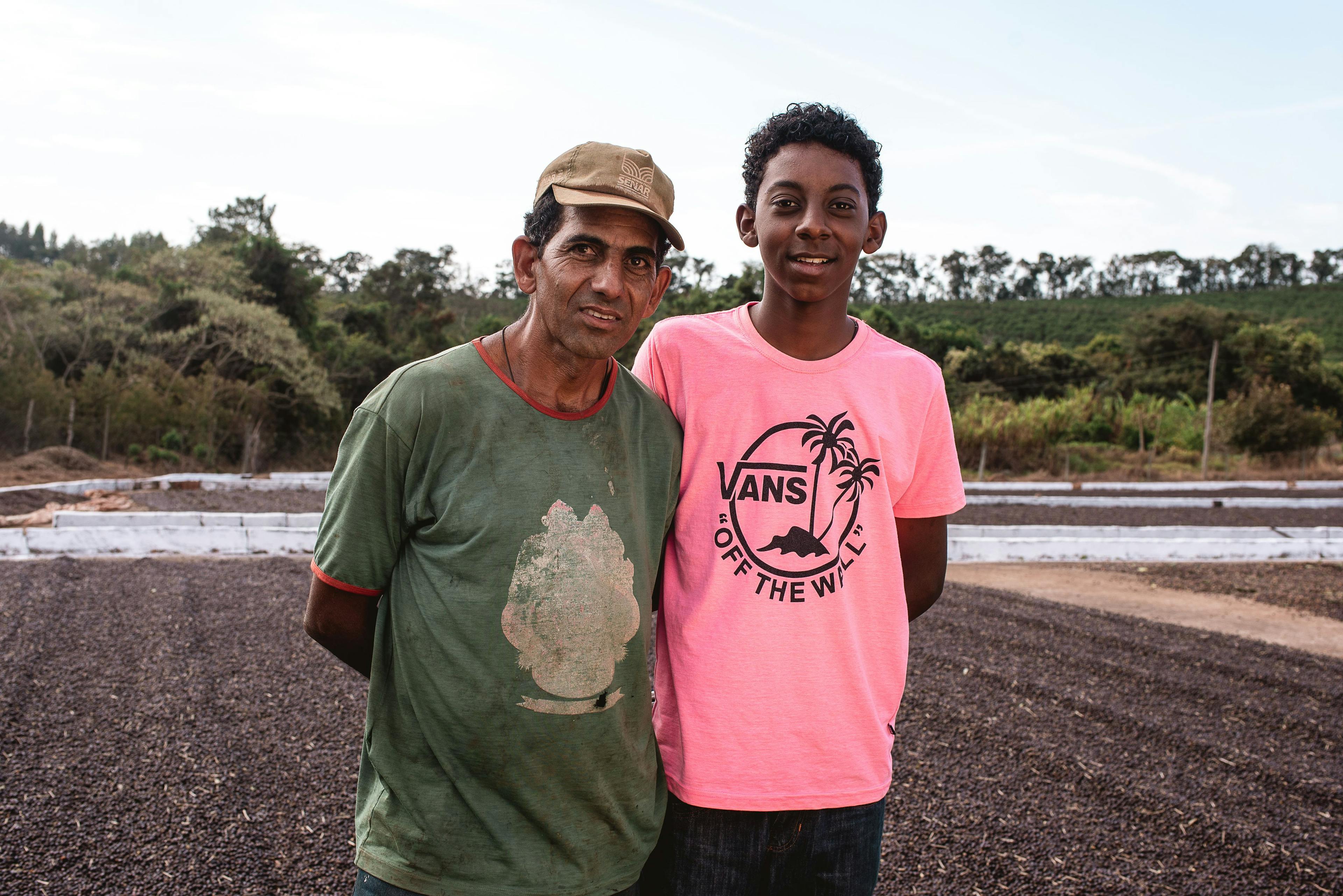
Addressing Megatrends in the Upcoming Five Years
We have just started our new 5-Year Strategy which will shape the years 2024 to 2028. It will focus on global megatrends that affect rural livelihoods ‒ namely climate change and future prospects of young people. Another goal for the coming years is building partnerships to maximize the impact of ICP’s work.

"Youth and climate change are very relevant megatrends in sustainability. We aim to enable youth to explore agriculture and coffee as pillars of their livelihood."
During the last 5-year period, ICP has reached some important milestones. In 2021, we celebrated ICP’s 20th anniversary. During these 20 years, we have continuously expanded our reach and proved that an innovative, holistic approach and cooperation within the coffee sector are crucial to tackle the challenges of smallholder farming families. Today, we have reached more than 115,000 smallholder families in 13 countries with this approach.
The past years were marked by the COVID-19 pandemic, adding pressure on already vulnerable livelihoods and leading to challenges in food security, transportation, and the availability of workforce and inputs in the project regions. Tropical storms Eta and Iota caused devastation in Central America. Flash flooding from Eta forced thousands of people out of their homes, and Iota brought heavy winds, rains, and landslips, exacerbating food insecurity and poverty in a region that was already struggling with the pandemic.
However, families who participated in our projects were better able to respond to and overcome the challenges of the pandemic than other groups in comparable circumstances. Additionally, we provided an emergency relief fund in the region of Central America affected by the tropical storms. Crises or not: We have never ceased to provide strong support to smallholder coffee farming families and their communities.
Holistic approach
As ICP, we perceive coffee production as part of the family farm as a whole and not in an isolated way. Our holistic approach includes family businesses, farmer organizations, youth, climate change resilience, and a gender perspective throughout all these elements. ICP’s shareholders are all family businesses who share a long-term perspective, and who live and breathe coffee every day: Joh. Johannson, Lavazza, Delta Cafés, Franck, Löfbergs, Neumann Kaffee Gruppe, and Tchibo.
Surpassing targets
In spite of these obstacles, we successfully reached a total of 37,000 project participants, significantly surpassing our own target of 27,150. Evaluations in Honduras, Brazil, and Tanzania demonstrated that we were effectively supporting farming families through our holistic strategy.
During the last 5-year period, we also developed our Theory of Change, complemented by a comprehensive set of Key Indicators (KPIs) that are needed to better evaluate project progress and impact. We gained greater visibility for our work and purpose through active communication and sharing of the Theory of Change and project experiences. Now it is essential to build on these accomplishments.
To achieve substantial results, we focused our work on six countries and regions worldwide: Ethiopia, Tanzania, Uganda, Honduras, Brazil, and Indonesia. Building solid networks with farmer organizations, NGOs, and stakeholders in every project region is now a firmly established element of our work that fruitfully contributes towards local ownership and regional scaling, and leverages the positive effects of our efforts.

"After five years, there is always a moment of reflection: How do we assess the global situation, what economic and political changes are there, and how are we responding? Is our program still in line with what the producers are saying and wanting; are they better off now?"
Range of challenges
Smallholder farmers still encounter a whole range of challenges in their daily lives and work: poverty in coffee-growing regions is still an issue, food insecurity is on the rise and agrarian productivity levels remain low in many places. Although coffee markets are firm and expected to grow, prices at the farm gate remain volatile. Thus, income from coffee growing does not always ensure that farming families can meet their needs. Rising food and fertilizer prices in consequence of the Ukraine war are adding to the economic burden of millions of smallholder coffee farming households.
Megatrend: Climate change
Climate change is progressing much faster than we all assumed – that is what is also shown in the unsettling events of recent years. In some cases, climate change is already threatening harvests, with food security suffering as a result. In many places, it does no longer suffice to merely address selected elements in the production system.
By planting other trees alongside coffee, the production system can be complemented with food crops or additional cash crops. At the same time, unfavorable weather conditions, plant diseases, and pests can be effectively addressed. ICP continues implementing adaptation and mitigation strategies throughout all project regions based on the approach of the initiative for coffee&climate (c&c).

"We have to rethink production systems. Increasing temperature, prolonged droughts as well as erratic rainfalls, increasing plant diseases and pest infestations, and are amongst the most pressing problems."
Megatrend: Young People
Another major challenge in coffee growing regions is that youth often migrate from the rural to more urban areas. They are hoping for a better life and opportunities there.
That is why we strive to empower youth, create prospects for them on site, within their rural communities, within and outside agriculture or the coffee industry. With the support of our activities, young people can experience the benefits of agriculture and realize its potential for profitability. We encourage dialogues about generational change within family structures.

"Sustainability in rural development and coffee production depends on young people too. We are perceiving a lack of interest among young people to get involved in agriculture in many places in the coffee-producing regions. Farming is often perceived as an activity of last resort, and it may seem like a lot of work for little return. In effect, young people tend to migrate to urban areas."
In our new 5-year strategy, we will continue working in the six focus countries Honduras, Brazil, Ethiopia, Tanzania, Uganda, and Indonesia. Here, we aim to reach 15,800 smallholder farming families to support them in improving their livelihoods, increasing the competitiveness of farmer organizations, applying farm diversification strategies, and implementing regenerative agriculture and agroforestry, among others. A special focus in all these activities is set on integrating youth and revealing perspectives for them: Thus, additionally, 5,000 youth shall benefit from ICP’s activities in the next five years.
To accomplish all this, ICP is keen to share knowledge and learnings. Currently, we cooperate with the Swedish International Development Cooperation Agency Sida and the Austrian Development Agency ADA as public partners and The J.M. Smucker Company as a private partner in addition to various local organizations and institutions in the project countries. But other private and public actors are invited to become better acquainted with ICP's experience and, where appropriate, to incorporate it into their work.
ICP has a lot to offer when it comes to knowledge and experience on the ground. Cooperation with public and private actors helps us all to utilize synergies and address the challenges in the regions more efficiently.